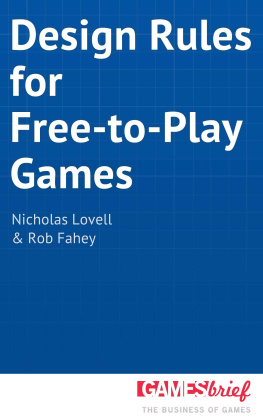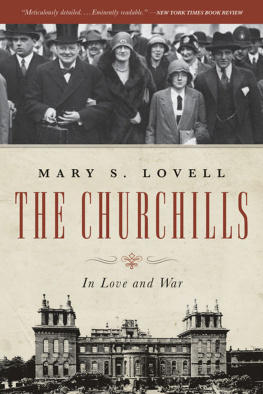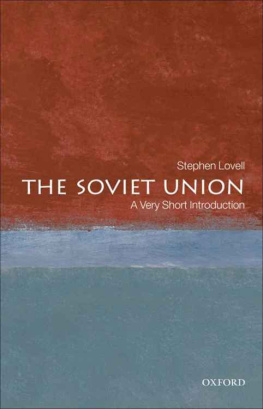Richard Lovell Edgeworth
A SELECTION FROM HIS MEMOIRS
EDITED BY BEATRIX L. TOLLEMACHE (HON. MRS. LIONEL TOLLEMACHE)
RIVINGTON, PERCIVAL & CO.
KING STREET, COVENT GARDEN
LONDON
1896
By THE SAME AUTHOR
Engelberg, and Other Verses. With Frontispiece. Crown 8vo. 6s.
Jonquille, or, The Swiss Smuggler. Translated from the French of
MADAME COMBE. Crown 8vo. 6s.
Grisons Incidents in Olden Times. Crown 8vo. 2s. 6d.
LONDON RIVINGTON, PERCIVAL & CO.
LIFE IS AN INN
THERE is an inn where many a guest
May enter, tarry, take his rest.
When he departs there's nought to pay,
Only he carries nought away.
'Not so,' I cried, 'for raiment fine,
Sweet thoughts, heart-joys, and hopes that shine,
May clothe anew his flitting form,
As wings that change the creeping worm.
His toil-worn garb he casts aside,
And journeys onward glorified.'
B. L. T.
RICHARD LOVELL EDGEWORTH
CHAPTER 1
Some years ago, I came across the Memoirs of Richard Lovell Edgeworth in a second-hand bookshop, and found it so full of interest and amusement, that I am tempted to draw the attention of other readers to it. As the volumes are out of print, I have not hesitated to make long extracts from them. The first volume is autobiographical, and the narrative is continued in the second volume by Edgeworth's daughter Maria, who was her father's constant companion, and was well fitted to carry out his wish that she should complete the Memoirs.
Richard Lovell Edgeworth was born at Bath in 1744. He was a shining example of what a good landlord can do for his tenants, and how an active mind will always find objects of interest without constantly requiring what are called amusements; for the leisure class should be like Sundays in a week, and as the ideal Sunday should be a day when we can store up good and beautiful thoughts to refresh us during the week, a day when there is no hurry, no urgent business to trouble us, a day when we have time to rise above the sordid details of life and enjoy its beauties; so it seems to me that those who are not obliged to work for their living should do their part in the world by adding to its store of good and wise thoughts, by cultivating the arts and raising the standard of excellence in them, and by bringing to light truths which had been forgotten, or which had been hidden from our forefathers.
Richard Edgeworth was eminently a practical man, impulsive, as we learn from his imprudent marriage at nineteen, but with a strong sense of duty. His mother, who was Welsh, brought him up in habits of thrift and industry very unlike those of his ancestors, which he records in the early pages of his Memoirs. His great-grandmother seems to have been a woman of strong character and courage in spite of her belief in fairies and her dread of them, for he writes that 'while she was living at Liscard, she was, on some sudden alarm, obliged to go at night to a garret at the top of the house for some gunpowder, which was kept there in a barrel. She was followed upstairs by an ignorant servant girl, who carried a bit of candle without a candlestick between her fingers. When Lady Edgeworth had taken what gunpowder she wanted, had locked the door, and was halfway downstairs again, she observed that the girl had not her candle, and asked what she had done with it; the girl recollected, and answered that she had left it "stuck in the barrel of black salt." Lady Edgeworth bid her stand still, and instantly returned by herself to the room where the gunpowder was, found the candle as the girl had described, put her hand carefully underneath it, carried it safely out, and when she got to the bottom of the stairs dropped on her knees, and thanked God for their deliverance'
When we remember that it was Richard Edgeworth, the father of Maria, who trained and encouraged her first efforts in literature, we feel that we owe him a debt of gratitude; but our interest is increased when we read his Memoirs, for we then find ourselves brought into close contact with a very intelligent and vigorous mind, keen to take part in the scientific experiments of the day, while his upright moral character and earnest and well-directed efforts to improve his Irish property win our admiration; and when we remember that he married in succession four wives, and preserved harmony among the numerous members of his household, our admiration becomes wonder, and we would fain learn the secret of his success. One element in his success doubtless was that he kept every one around him usefully employed, and in the manner most suited to each. He knew how to develop innate talent, and did not crush or overpower those around him. He owed much to the early training of a sensible mother, and he gives an anecdote of his early childhood, which I will quote:
'My mother was not blind to my faults. She saw the danger of my passionate temper. It was a difficult task to correct it; though perfectly submissive to her, I was with others rebellious and outrageous in my anger. My mother heard continual complaints of me; yet she wisely forbore to lecture or punish me for every trifling misdemeanour; she seized proper occasions to make a strong impression upon my mind.
'One day my elder brother Tom, who, as I have said, was almost a man when I was a little child, came into the nursery where I was playing, and where the maids were ironing. Upon some slight provocation or contradiction from him, I flew into a violent passion; and, snatching up one of the boxirons which the maid had just laid down, I flung it across the table at my brother. He stooped instantly; and, thank God! it missed him. There was a redhot heater in it, of which I knew nothing until I saw it thrown out, and until I heard the scream from the maids. They seized me, and dragged me downstairs to my mother. Knowing that she was extremely fond of my brother, and that she was of a warm indignant temper, they expected that signal vengeance would burst upon me. They all spoke at once. When my mother heard what I had done, I saw she was struck with horror, but she said not one word in anger to me. She ordered everybody out of the room except myself, and then drawing me near her, she spoke to me in a mild voice, but in a most serious manner. First, she explained to me the nature of the crime which I had run the hazard of committing; she told me she was sure that I had no intention seriously to hurt my brother, and did not know that if the iron had hit my brother, it must have killed him. While I felt this first shock, and whilst the horror of murder was upon me, my mother seized the moment to conjure me to try in future to command my passions. I remember her telling me that I had an uncle by the mother's side who had such a violent temper, that in a fit of passion one of his eyes actually started out of its socket. "You," said my mother to me, "have naturally a violent temper; if you grow up to be a man without learning to govern it, it will be impossible for you then to command yourself; and there is no knowing what crime you may in a fit of passion commit, and how miserable you may, in consequence of it, become. You are but a very young child, yet I think you can understand me. Instead of speaking to you as I do at this moment, I might punish you severely; but I think it better to treat you like a reasonable creature. My wish is to teach you to command your tempernobody can do that for you so well as you can do it for yourself."
'As nearly as I can recollect, these were my mother's words; I am certain this was the sense of what she then said to me. The impression made by the earnest solemnity with which she spoke never, during the whole course of my life, was effaced from my mind. From that moment I determined to govern my temper.'











